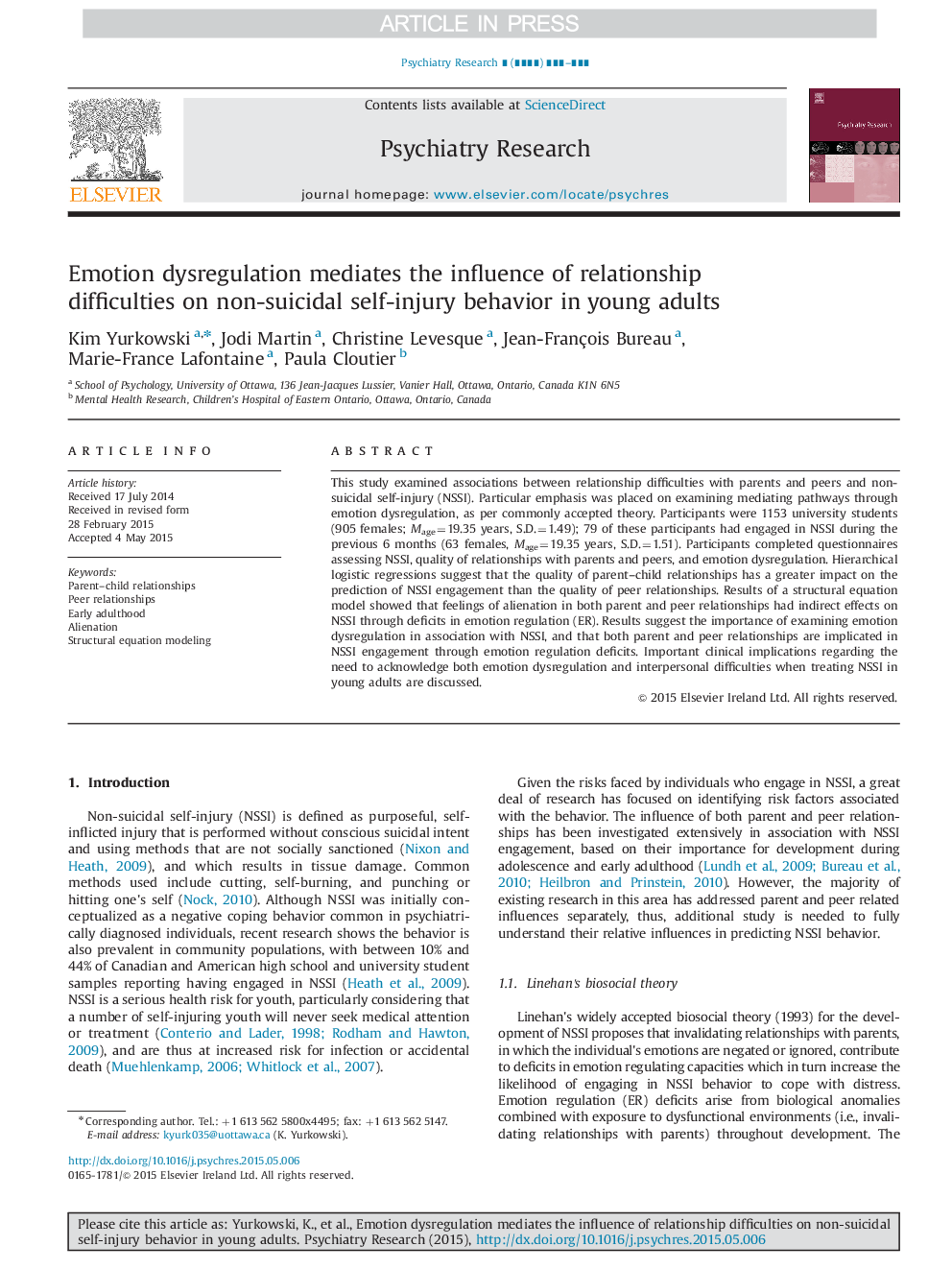| Article ID | Journal | Published Year | Pages | File Type |
|---|---|---|---|---|
| 10303754 | Psychiatry Research | 2015 | 8 Pages |
Abstract
This study examined associations between relationship difficulties with parents and peers and non-suicidal self-injury (NSSI). Particular emphasis was placed on examining mediating pathways through emotion dysregulation, as per commonly accepted theory. Participants were 1153 university students (905 females; Mage=19.35 years, S.D.=1.49); 79 of these participants had engaged in NSSI during the previous 6 months (63 females, Mage=19.35 years, S.D.=1.51). Participants completed questionnaires assessing NSSI, quality of relationships with parents and peers, and emotion dysregulation. Hierarchical logistic regressions suggest that the quality of parent-child relationships has a greater impact on the prediction of NSSI engagement than the quality of peer relationships. Results of a structural equation model showed that feelings of alienation in both parent and peer relationships had indirect effects on NSSI through deficits in emotion regulation (ER). Results suggest the importance of examining emotion dysregulation in association with NSSI, and that both parent and peer relationships are implicated in NSSI engagement through emotion regulation deficits. Important clinical implications regarding the need to acknowledge both emotion dysregulation and interpersonal difficulties when treating NSSI in young adults are discussed.
Keywords
Related Topics
Life Sciences
Neuroscience
Biological Psychiatry
Authors
Kim Yurkowski, Jodi Martin, Christine Levesque, Jean-François Bureau, Marie-France Lafontaine, Paula Cloutier,
